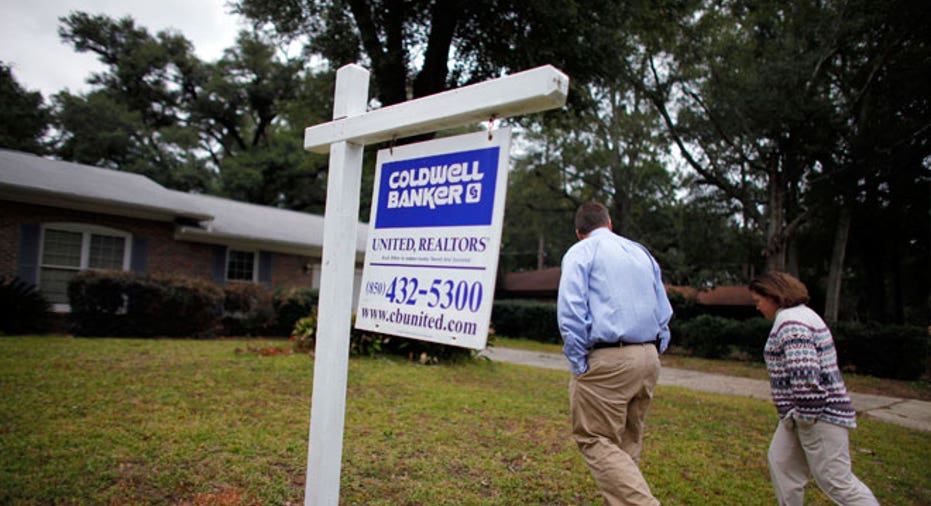Homebuyers: What’s in a (Street) Name?

Potential homebuyers can be picky about a lot of things.
They can decide not to see homes with fewer than three bedrooms or homes that are close to the highway. They can reject homes that don’t get enough sunlight or homes that don’t have two sinks in the master bathroom.
The pickiest of buyers, though, can be selective about a certain something that has probably never crossed your mind: the name on the street sign.
(Yes, for real.)
While it’s almost never a prime factor in a home’s marketability, the literal address of a home can sometimes impact its appeal to potential buyers.
Real-estate website Trulia recently examined the correlation between the price of a home and its address suffix (i.e. – “avenue,” “boulevard,” “court,” etc.). The company found that homes on boulevards are generally the most expensive, with a median price of $117 per square foot. Homes on plain old “street” were found to be the cheapest, at $86 a square foot. That’s a difference of 36%.
In this case, the mere name of the suffix probably had little to do with the results; Trulia found that boulevards have a greater average concentration of apartment buildings and condos than any other street suffix, meaning costs could be higher simply because the region is more densely populated and space is at a premium.
Still, while homebuyers may not be selective about whether they live on a “lane” or “road”, every once in awhile they do seem to care about the first half of their address.
Street stigmas
Sylvia Crossland, who runs a real-estate agency with her husband in Austin, Texas, said she once had a buyer refuse to look at a home on Columbine Drive because it shared the name of the infamous mass shooting at Columbine High School.
“The buyer said ‘Oooh, I don’t think I want to buy a house on that street,’” says Crossland. “I think of the columbine flower; I hadn’t even thought about that.”
(Interestingly enough, Crossland’s husband, Steve, did an analysis back in 2006 about whether homes on streets like “Ammunition” or “Six Gun” in South Austin were harder to sell than others. While he did find that those homes on those roads generally sold for less, the results were mostly inconclusive.)
For a homebuyer to be vocal about a street name is rare, says Jeffrey Adler, an agent with Keller Williams in Ridgewood, N.J. He could only think of one or two instances in the last 20 years where a person refused to look at a home because of the name – and in those cases, it was because it was the name of the person’s ex-spouse.
While it’s unsurprising that “street name” isn’t high on buyers’ radar, some in the real-estate industry are surprised it isn’t an issue more often.
Elizabeth Weintraub, a broker with Lyon Real Estate in Sacramento, said she finds it interesting that buyers don’t often comment on how they feel about a street name, as it’s something to which she is particularly attune. She herself lives on a road named after a cartoon character (she declined to name which) and says it has always bothered her.
As a result, she says it’s best to assume that anything can affect a buyer’s interest in a home.
“A really good buyer’s agent will never make a comment about a street name to a buyer because he or she doesn’t want to do anything to harm a sale,” she says.
No. 44? No thanks
A much more common complaint among buyers is about the house number, especially among those who subscribe to the theories of feng shui, real-estate experts say.
“Many Chinese and Korean buyers will not buy a home that has a house number with more than one ‘4’,” says Bonnie Kehl, a broker associate with Coldwell Banker in Los Altos, Calif. “Most of [my] Chinese clients like the number 8 and will pay more money if there are many '8's.”
Kehl adds that some clients are also iffy about buying a house numbered “666” due to its negative connotations in the Christian religion.
Roadwork
In most cases, real-estate developers are responsible for naming streets. Oftentimes the names will be derived from trees or geographical features native to the area, or will reference historical names relevant in the community, says Tom Walsh, a founding principal of urban design firm TSW & Associates. (If you’re interested, Walsh’s office is on the sweetly named ‘Peachtree Street’ in Atlanta, Ga.)
When those names don’t pass muster with residents, cities and towns could be tasked with deciding whether or not to honor requests for a name change. While every municipality has its own rules, the argument typically has to be very compelling, as changing the name could be costly and confusing.
“If someone decided they didn’t like ‘Elm Street’ because it’s creepy, our standards say it’s been in common use and on maps for over 50 years, so the city probably wouldn’t entertain a change like that,” says Reuben McKnight, historic preservation officer for the city of Tacoma, Wash.
“Streets affect everybody. Everybody has an address, everybody has letterhead or business cards,” he adds.
Just last month, a handful of residents in Smithfield, R.I., petitioned to have their street name changed from Domin Avenue to Harmony Road; Domin is the name of a deceased Ku Klux Klan leader who held rallies on the site in the 1920s. He named the road himself.
The residents pushing for the change have met resistance with their own neighbors, who say that the change will mean having to update all of their financial, medical and personal records. A final decision from the town is due after the November elections.



















